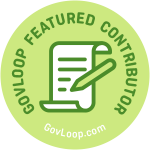Email is the perfect double-edge sword. On one hand, it is a great way to communicate and have an instant record. Email is fast and can help you stay organized. On the other hand, based on your workload, it can feel like a daunting, never-ending to-do list. So many CCs and Forwards and “HOT! Items” and the list goes on and on. But even as email can seem overwhelming, when mastered, it can be a great gateway to success and upward mobility.
An organized you is a more productive you
The days of the written to-do lists are just about over. Now, your inbox is your to-do list with a lot more bells and whistles. Use those perks to your advantage! Use flags to highlight the important tasks. Use colors and rules to easily distinguish those emails from VIPs.
Most importantly, folders, folders, folders! I have folders as a life saver. When approached correctly, you will never lose information and will always be counted on for your ability to find information fast. Best practice is to make a folder for each of your duties and one miscellaneous for those ‘onesie’ emails whose subjects may not necessarily fit in with your everyday tasks, but that you recognize should not be discarded just yet. Your miscellaneous folder should have minimum content.
Just as important as keeping folders is knowing what to put in them and when to take it out. Many email systems that are on a server send a notice when your inbox is full and will force you to try to clean up your inbox and folders. But you shouldn’t wait for that notice. It’s best to schedule periodic reviews of your email. I suggest quarterly and yearly reviews to go over old emails and determine what can be discarded. Getting and staying uncluttered is the goal of a successful inbox.
Imagine having an empty inbox! I know it may be just a fantasy for some, but what an ideal to work towards! It really is a great feeling to have a clean inbox. It allows you to experience the same feeling as that checklist from yesteryear with all the items crossed out. The feeling of accomplishment is empowering.
What goes out is just as important as what comes in
Being quick on the draw – answering emails in a timely fashion and being counted on to respond – is a sure way to make a positive impression at work. Depending on workload, the expectation may differ, but a good rule of thumb is to answer the “easy” emails right away and not allow more than two days to answer all emails, even if it means just acknowledging receipt and returning later for a more comprehensive response. Many “FYI” emails do not require a response and can be relegated to folders using the rules feature, as mentioned in further detail here. You also may want to inform the sender if you are not needed on the distribution list. Any way to declutter your inbox should be utilized.
Just as important as astutely responding to emails is how you respond. Keeping it short and simple (KISS) is a great guiding principle. Does your subject line adequately describe the body and main point; is it searchable for research purposes? Is the body of your email relegated to a few lines or paragraphs? Is it precise and easy to follow? Is there a minimal amount of research needed; have you provided enough information so that the receiver can grasp what is being asked or relayed? Are your punctuation and grammar correct? Spell check is your friend! Have you addressed the email to the right person using the appropriate title (especially important for the military) and have you closed the email in a respectful manner? Does your signature provide your email address and phone number? These are questions to consider when composing an email and subsequently sealing your reputation as a thorough, well-prepared communicator.
Good communication is the key to success in the workplace.
Communication comes in many forms. In the modern-day office, email is at the top of this list. Conquering the world of electronic mail is an enormous step forward in achieving success. Maintaining an organized, clutter-free inbox makes things easier for you. Astutely responding to and composing emails makes things easier for others. If done correctly, you can leave an invaluable, indelible impression upon your colleagues and customers.
You may find more interesting reading on the subject of email here: Email Etiquette in the Age of Brevity and here: 2 Tips Gov Execs Do to Manage Email
Tamara Key is part of the GovLoop Featured Contributor program, where we feature articles by government voices from all across the country (and world!). To see more Featured Contributor posts, click here.





Thanks so much for this, Tamara! I achieved inbox zero this morning… and it lasted all of five minutes But I relished it while I had it!
But I relished it while I had it!